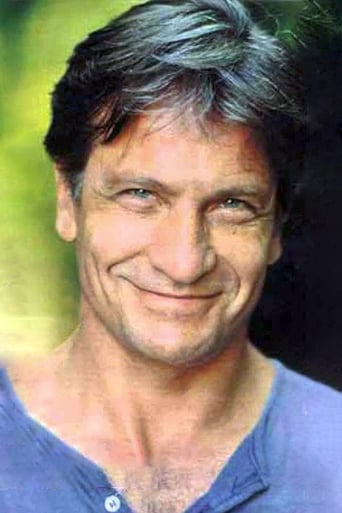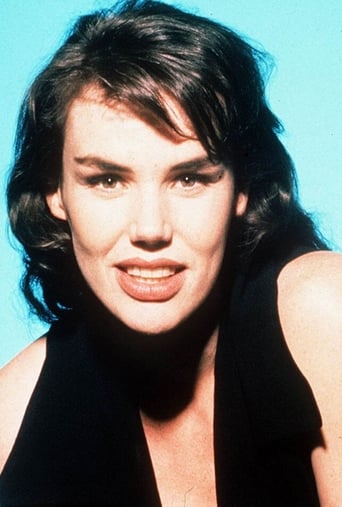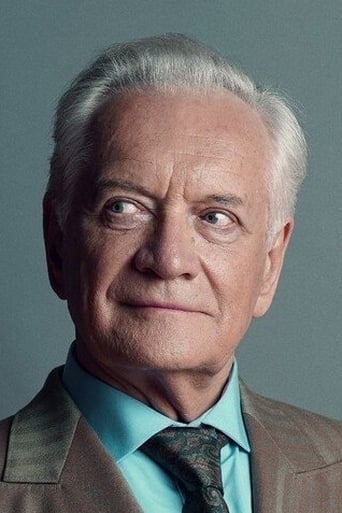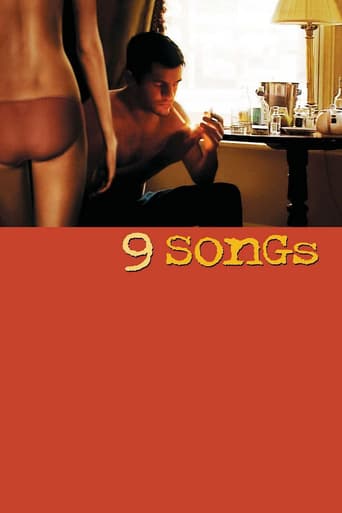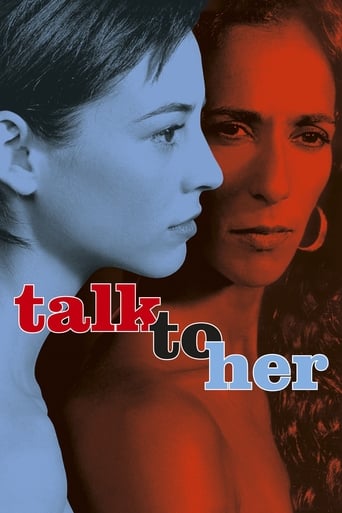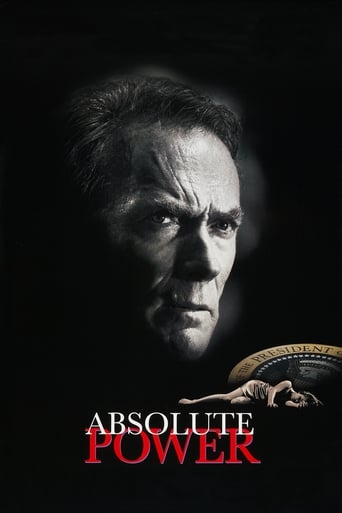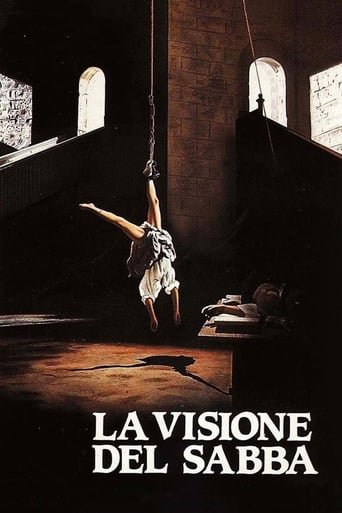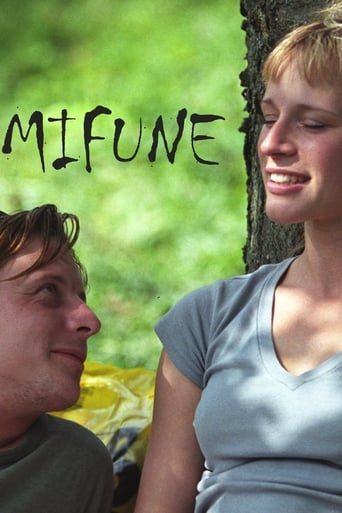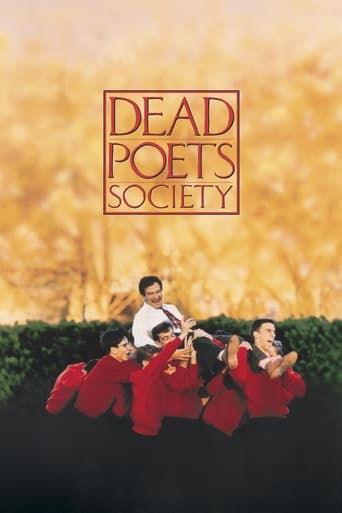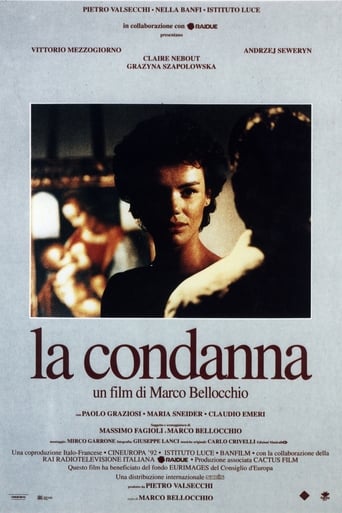
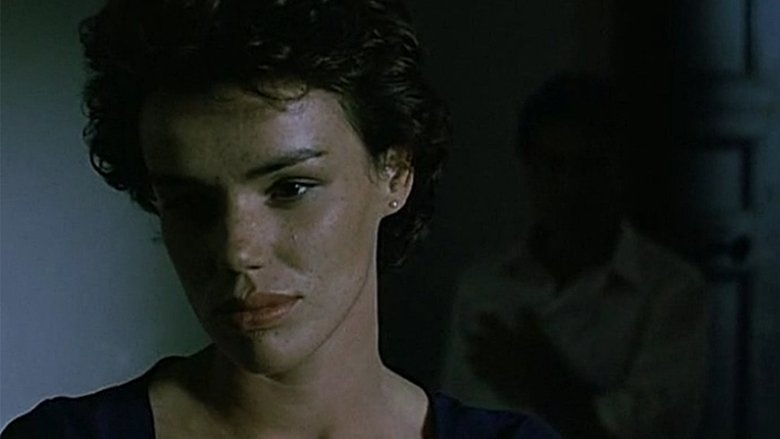
The Conviction (1991)
A girl and her art professor get trapped inside a castle-museum after it closes at night. After a little resistance she agrees to have sex with him, but then she sues the professor for rape. The professor will have to prove his innocence.
Watch Trailer
Cast
Similar titles

Reviews
the audience applauded
hyped garbage
The film never slows down or bores, plunging from one harrowing sequence to the next.
The film never slows down or bores, plunging from one harrowing sequence to the next.
In Italy, the student Sandra Celestini (Claire Nebout) is visiting a museum in a castle with her class led by the architect Lorenzo Colajanni (Vittorio Mezzogiorno). Sandra distracts and finds locked alone into the castle and soon she stumbles upon Lorenzo. Out of the blue, they spend the night having sex in different positions. In the morning, she learns that Lorenzo has the key and they could have left the castle. Soon Sandra accuses Lorenzo of rape and sues him. He is sentenced guilt and sent to prison. The prosecutor Giovanni (Andrzej Seweryn) is not capable to give orgasm to his wife Monica (Grazyna Szapolowska) and visits Lorenzo in the prison to learn how to proceed to give pleasure and satisfy his woman. "La condanna" is a pretentious erotic drama by Marco Bellocchio. The screenplay is confused, with ellipsis after the night in the castle jumping to a trial in court. Awarded with the Golden Globe (Italy) in the category "Best Fim" and nominated to the Golden Belin Bear (Marco Bellocchio) in the Berlin Film Festiva, this film won the Silver Berlin Bear in the Special Jury Prize (Marco Bellocchio). My vote is five.Title (Brazil): "O Processo do Desejo" ("The Process of the Desire")
Marco Bellochio pays homage in this film to the Gallic novelistic methods that he favours, particularly those depicting a primal life force, in this three part ethological drama co-scripted by the director and his defrocked psychoanalyst friend Massimo Fagioli, a cinematic triumph that displays a notable admixture of style and purpose as it reflects upon a trenchant formation of cause and effect: the psychology of sex, utilizing formal design in addition to surrealist imagery within mundane settings that few auteurs can match. Sandra Celestini (Claire Nebout) is touring the Farnese Castle gallery, near Viterbo, with her classmates under the aegis of their art professor, and when she has apparently lost keys to her apartment, she separates from the group in order to locate them and is subsequently locked inside, therefore preparing to wait for the morrow, when she discovers that she is not alone in the Castle, because Lorenzo Colajanni (Vittorio Mezzogiorno), an architect, is in for the evening. It soon becomes apparent that Sandra is about to be sexually assaulted by her new companion, their unplanned intimacy being exquisitely choreographed. When Lorenzo tells Sandra that he has in his possession the keys to the Castle, and that the two could have left the premises at any time, part one abruptly ends with part two taking place in a courtroom where Colajanni is being tried for rape of Sandra, an event marked by dialogue that concerns purely theoretical aspects of the Castle episode, i.e., was the lovemaking a result of coercion or rather shared passion?; indeed, how can force be defined during sexual contact?; is female sexual response released by an innate desire to be forcefully taken? This is plainly a subject designed for spirited controversy, but the juridical proceedings are mirrored by the troubled psychosexual private life of the case's prosecuting attorney, Giovanni (Andrzej Seweryn), forming the marrow of part three, depicting a philosophical choice to be made between temptation and coercion that haunts the relationship of Giovanni with his dissatisfied mistress. Although clues to clear resolution of these perennial conflicts will be sought by some viewers, the cardinal value of the film results from Bellochio's surehanded and ever fluid directorial craft, as his gliding camera provides ongoing surprises throughout this visually splendid motion picture that energizes both mind and eye, with rich contributions coming from Mirco Garrone and his crisp editing, Giuseppe Lanci, cinematographer, and Carlo Crivelli for his illustrative score, while acting honours here go to Nebout for her striking performance as Sandra.
